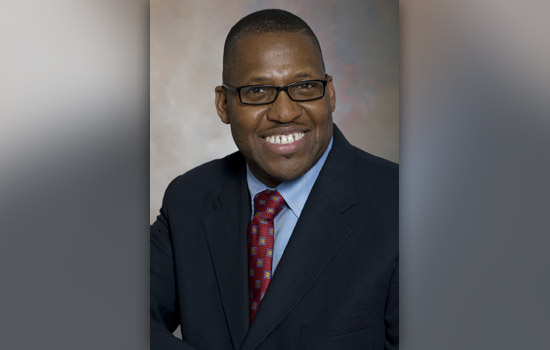RIT Team Analyzes Style, Impact of Barack Obama’s Campaign Rhetoric
It is one of the first studies of Obama’s rhetorical style and its effect on policy
Keith Jenkins
A research team from the Rochester Institute of Technology has completed an analysis of the rhetorical style used in the 2008 campaign by President Barack Obama and its impact on his leadership and policy decisions.
The study found that Obama’s rhetoric focused most specifically on the concept of pragmatism as well as the importance of egalitarianism and the power of government. The authors argue this framework can be used to map the theoretical and ideological drivers of Obama’s policy programs.
“Political rhetoric, the use of specific messages, themes and speaking style to promote an agenda, is often seen in a negative light because it can enhance image over substance,” notes Keith Jenkins, associate professor of communication at RIT. “However, examining the rhetoric used allows scholars and voters to get an understanding of what kind of leader a politician will be and what kind of laws he or she will advocate for.”
Jenkins and Grant Cos, also an associate professor of communication, analyzed Obama’s public speeches, articles, books and political advertisements produced during the 2008 campaign season. They then mapped the themes and messaging to specific policy platforms and legislation Obama has advocated for. The results were published in American Behavioral Scientist.
“In looking at President Obama’s campaign rhetoric he has focused on pragmatic approaches to policy problems and shown a commitment to a guiding set of principles that focus on the average citizen, the need for active government and a willingness to compromise to get things done,” Cos says. “These themes can be seen in his promotion of nationalized health care and his willingness to work with Republicans to continue the Bush tax cuts.”
“These actions have not occurred in a vacuum,” Cos adds. “They are based on policy principles that have run continuously through Obama’s rhetoric since the beginning of the 2008 campaign.”
Jenkins and Cos hope their analysis will assist in developing a better assessment of Obama’s presidency and how he has sought to meet the goals he set for himself during the 2008 campaign.
“A president’s legacy is often based on outside forces, such as the economy or international affairs, that have little to do with his actual policy actions,” Jenkins adds. “By providing a blue print through which Obama’s rhetoric can be compared to his actual policies, a more informed opinion can be developed of his performance as president.”
 Grant Cos
Grant Cos













